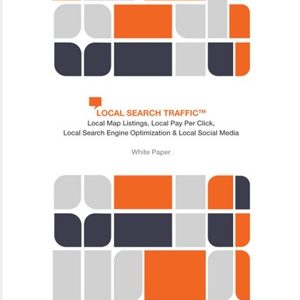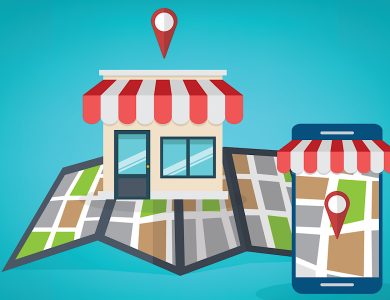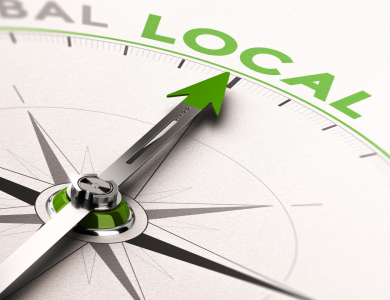
Statista reports that the number of Facebook users in the U.S., as of July 2021, has reached an impressive 302 million, and this figure is expected to grow significantly in the future.
When you consider that the total U.S. population is around 334 million, it’s clear that nearly two out of three U.S. citizens are actively using Facebook.
This social media platform, along with others, has the potential to significantly boost your local business—if used correctly.
So, how can your business, and particularly its local search presence, benefit from being active on social media channels?
Before deciding if you’re ready to dive into social media marketing, let’s explore why it’s worthwhile to do so.
Why Local Businesses Should Invest Time & Money In Social Media Marketing
While social media is not a direct search ranking factor, there are many indirect ways it supports SEO.
You’re probably already overwhelmed with promoting your business. Adding more marketing tasks might seem excessive, but ignoring social media in your marketing strategy can cost you—both in terms of attracting new customers and retaining your existing ones.
Make no mistake, your competitors are out there looking to capture business you might be losing.
Building a relationship with your clients increases the chances of retaining them and enhances their potential lifetime value.
Here are some compelling reasons to consider:
“Hey, Does Anyone Know A Good…?”
People on social media constantly seek recommendations from friends for almost everything, from local restaurants to car repair services.
Social media platforms can help you become part of these conversations.
Facebook Recommendations
For example, Facebook allows users to tag their favorite brands when they wish to promote them. Additionally, when posting a photo of themselves at a store, hotel, amusement park, or car dealership, users can tag the location.
Here’s a quick example of Facebook recommendations in action:
[Image via SEO Journal, January 2022]Notice the brand’s name in the photo caption? That’s why having an updated Facebook Business page is crucial. It also helps to enable the customer testimonials feature and engage with followers regularly.
Is there a specific way to fill in company info on Facebook? Not exactly, but these tips can help you get started:
- Contact information (phone number, address, email)
- Operating hours
- Website link
- Price range (important for physical stores, restaurants, cafes, etc.)
Facebook also suggests adding your brand’s story to foster a deeper connection with customers.
“Worst Service Ever!”
Even if you’re not active on social media, people will discuss your business. Customers share feedback, both positive and negative, and you need to stay informed.
- Good feedback: Leverage a happy customer’s praise to attract more clients or encourage repeat business.
- Bad feedback: Manage the conversation by showcasing excellent customer service skills. Turn a dissatisfied customer into a fan by listening to and resolving their issue.
It’s usually not about making a mistake, which is unavoidable. Instead, it’s about how you address it. A bonus is that you learn more about customers’ opinions and can improve your business.
When you aren’t present, complaints can go viral, and competitors might attract your customers by actively listening.
Cut Your Ad Costs By Switching To Local Advertising
Social media platforms are designed for advertisers. Location is one of many demographic aspects you can target in your ads.
By precisely targeting ads based on location, interests, and other demographic details, you can achieve maximum customer potential at minimal cost.
Furthermore, by adjusting ad targeting and content, you can learn more about ideal leads than any survey could reveal at a fraction of the cost.
If you don’t use these ad features, your competitors might capitalize on opportunities you’re missing.
Consider remarketing, which allows you to target people who have visited your site without making a purchase by using Facebook Pixel to serve branded ads based on pages they viewed.
Let The Fans Speak For You
Social media marketing is perfect for building a passionate community around your brand.
Connecting people with similar interests encourages them to promote you authentically. Beyond owning brand conversations, you’re fostering long-term customer relationships, both with you and among themselves.
Satisfied customers will help with word-of-mouth marketing and customer service, and they’ll return for more business.
Community Building Ideas
Suppose you own a craft supplies shop. You might showcase customer projects on Pinterest and Facebook to invite discussion, encouraging sharing of accomplishments, challenges, and aspirations centered around your products.
Another example: A local juice bar can create a community focused on detoxing and weight loss. Users can inspire one another, while you share juice recipes and salute everyone’s achievements. You can organize meetups at your bar, leveraging social media functionality for ease.
Consider supporting significant causes, such as Coffee Project New York’s initiative to provide clean water in Ethiopia. This kind of effort helps establish you as a strong brand with low-cost investment.
Easy Promotion Of New Products & Services
While traditional channels still have merit, social media can amplify your product or service promotions. Through social advertising, your community, and your page, you have multiple options to showcase your offerings using images, text, and video.
You can even let your fans share the news. If you produce shareable content, they’ll pass it on. Highlight positive reviews to attract more followers.
Free Mass Publicity
Some social influencers expect companies to acquiesce to negative posts. However, if you’re authentic, open in communication, and use clever banter, you often end up on the winning side, as people tire of spoiled influencers and cheer for the authentic brand.
CVT Soft Serve vs. Influencers
Joe Nicchi of CVT Soft Serve became fed up with influencer handouts and introduced a tongue-in-cheek ‘special offer’—charging influencers double. His followers fully supported him, proving that brands can rally support, even amid negative situations.
Which Social Media Platforms Are Best For Your Business?
You can’t do everything at once, so starting with one or two channels is wise. Here are tips for selecting the right platforms:
-
Type Of Content: Different platforms support different types of content. Service businesses might not post as frequently as retail stores, so Instagram may not work for everyone.
-
Where & When Is Your Audience Most Active?: Having a page doesn’t mean posting daily. Research audience activity to fit your posting schedule.
- What Is Your Budget?: Consider your time and resources. Successful social media requires engagement, not just posting.
Connecting Your Offline Customers With Your Social Media Platforms
Once you choose social media platforms, link offline customers with online activity through incentives and community-building efforts.
Takeaway
Social media marketing is a cost-effective way to boost visibility for local businesses. Engage locals with relevant content and watch your influence grow.
More Resources:
- New Research Shows How To Win In Local Search
- How To Create A Winning Local SEO Content Strategy
- Local SEO: The Definitive Guide To Improve Your Local Search Rankings [Ebook]



